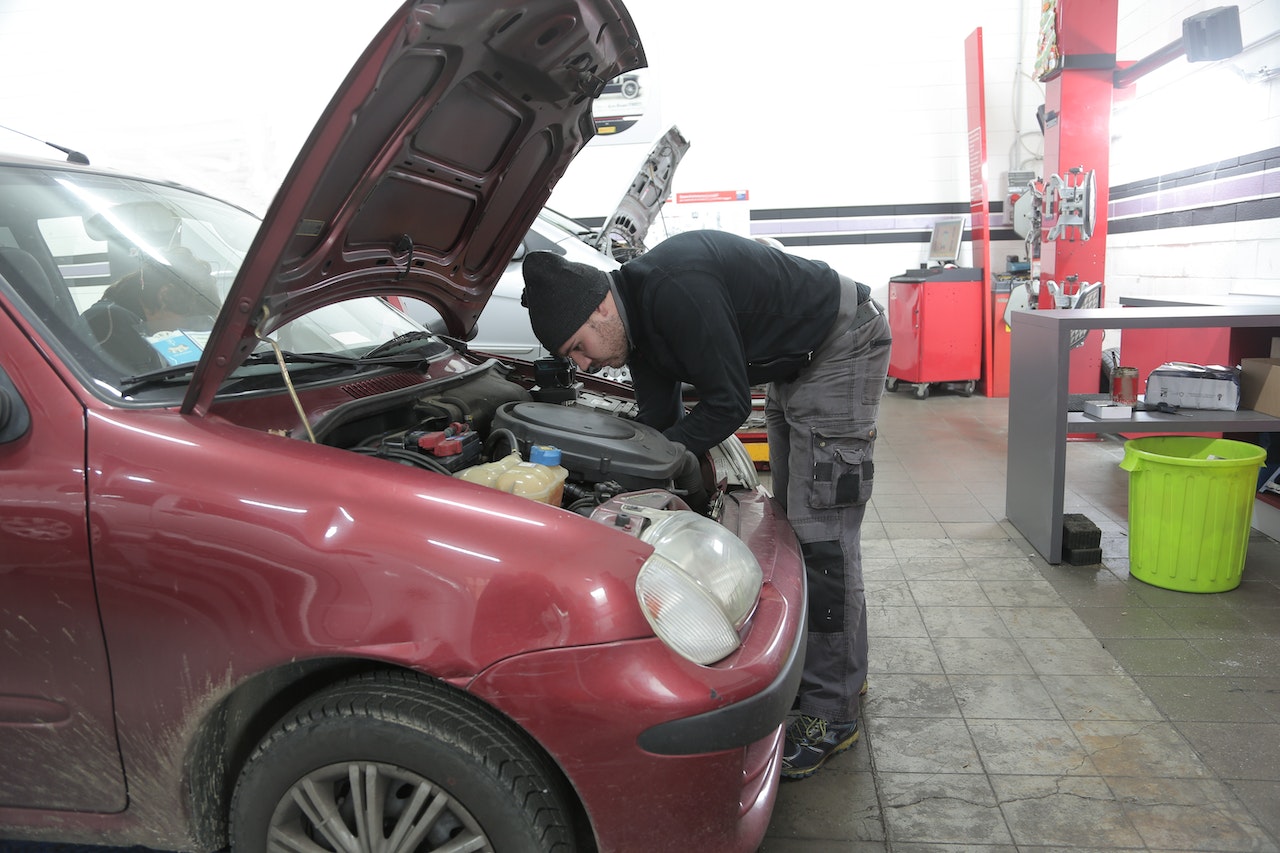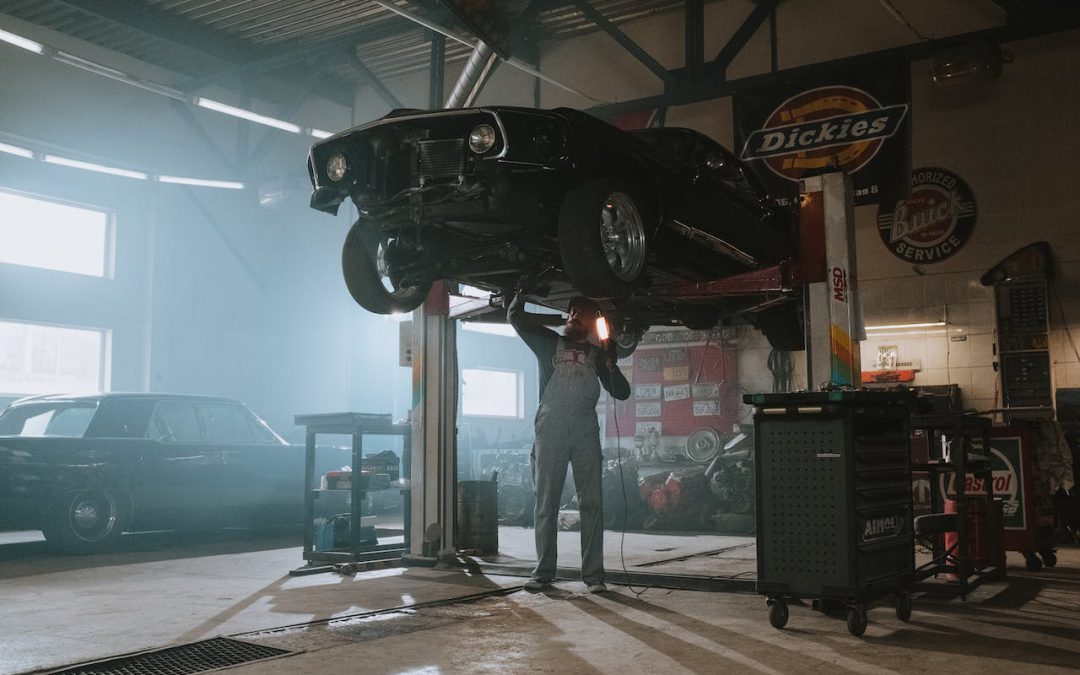Maintaining an older vehicle can be a challenging yet rewarding endeavor. Many owners of vintage or older cars often feel a strong emotional connection to their vehicles, which can lead to a commitment to keep them running efficiently. However, older vehicles require a different level of care compared to newer models due to the natural wear and tear that occurs over time. This article delves into the importance of auto maintenance services for older vehicles, exploring the benefits, common maintenance tasks, and tips for keeping these vehicles in prime condition.
Understanding the Unique Needs of Older Vehicles
As vehicles age, their components and systems may become more susceptible to wear and tear. Older vehicles often have distinct needs compared to their newer counterparts. Here are some factors to consider:
1. Wear and Tear of Parts
Older vehicles typically have mechanical parts that may be more prone to deterioration. Components like the engine, transmission, brakes, and suspension systems can develop issues due to age and usage. As parts age, they can lose effectiveness and efficiency, which can impact overall vehicle performance.
2. Obsolescence of Technology
Many older vehicles lack the modern technology and advanced materials found in newer cars. This can lead to difficulties in sourcing replacement parts, as manufacturers may stop producing them. Regular maintenance can help identify potential issues early, making it easier to find or fabricate replacement parts before they become critical.
3. Increased Risk of Rust and Corrosion
Older vehicles may also be more susceptible to rust and corrosion, particularly if they were not adequately maintained in their early years. This is especially true for vehicles exposed to harsh weather conditions, road salt, or inadequate storage. Routine maintenance can help identify early signs of rust, allowing for timely intervention.
4. Decreased Fuel Efficiency
With age, many older vehicles experience a decline in fuel efficiency. Regular maintenance can help improve engine performance and increase fuel efficiency by ensuring that components such as the air filter, fuel injectors, and spark plugs are in good condition.
5. Emissions Control Issues
Older vehicles may struggle to meet modern emissions standards, leading to potential legal and environmental issues. Proper maintenance can help ensure that emissions control systems are functioning correctly, which is crucial for both compliance and environmental responsibility.
Benefits of Regular Auto Maintenance for Older Vehicles
Regular maintenance is essential for keeping older vehicles running smoothly. Here are several key benefits:
1. Extended Vehicle Lifespan
One of the most significant advantages of regular maintenance is the potential to extend the vehicle’s lifespan. Routine inspections and servicing can identify and address minor issues before they develop into major problems, helping to keep the vehicle on the road longer.
2. Improved Safety
Older vehicles may lack modern safety features, making regular maintenance even more critical. Ensuring that brakes, tires, lights, and other safety components are in good working order can help prevent accidents and keep drivers and passengers safe.
3. Enhanced Performance
Regular maintenance can help maintain optimal performance levels in older vehicles. This includes ensuring that the engine runs smoothly, the transmission shifts correctly, and the suspension system absorbs bumps effectively.
4. Increased Resale Value
For owners considering selling their older vehicles, regular maintenance can help maintain or even increase resale value. A well-maintained vehicle is more attractive to potential buyers and can command a higher price.
5. Reduced Repair Costs
While maintenance services may seem like an added expense, they can save money in the long run. Regularly serviced vehicles are less likely to experience major breakdowns that require costly repairs. Preventative maintenance can help identify issues before they escalate.
6. Peace of Mind
Knowing that a vehicle has been regularly maintained can provide owners with peace of mind. This is particularly important for those who rely on their older vehicles for daily transportation. Regular maintenance helps ensure that the vehicle is reliable and ready for the road.
Common Maintenance Tasks for Older Vehicles
Understanding the common maintenance tasks required for older vehicles can help owners keep their cars in excellent condition. Here are some essential services to consider:
1. Regular Oil Changes
Oil changes are one of the most critical maintenance tasks for any vehicle, regardless of age. Older vehicles may require more frequent oil changes to ensure that the engine runs smoothly and efficiently. It is essential to use the correct type of oil for the specific make and model.
2. Fluid Checks and Changes
In addition to engine oil, several other fluids must be regularly checked and replaced, including:
- Transmission Fluid: Essential for smooth gear shifts and overall transmission health.
- Brake Fluid: Important for safe braking performance.
- Coolant: Helps regulate engine temperature and prevent overheating.
- Power Steering Fluid: Ensures smooth steering operation.
3. Tire Maintenance
Proper tire maintenance is crucial for safety and performance. This includes:
- Regular Inspections: Checking for signs of wear, uneven tread, or damage.
- Tire Rotation: Helps ensure even wear and prolongs tire life.
- Inflation Checks: Maintaining the correct tire pressure for optimal performance and fuel efficiency.
4. Brake Inspections
Brakes are one of the most critical safety components of any vehicle. Regular inspections of brake pads, rotors, and fluid levels are essential to ensure safe stopping power.
5. Battery Maintenance
Older vehicles may have battery issues due to age or corrosion. Regular battery checks can help identify problems early. Cleaning terminals and ensuring secure connections can prolong battery life.
6. Suspension and Steering Checks
Inspecting the suspension and steering components is vital for ride comfort and safety. This includes checking for worn-out shocks, struts, and bushings, which can impact handling and stability.
7. Electrical System Checks
Older vehicles may experience electrical system issues, including worn-out wiring or faulty connectors. Regular inspections can help identify and address electrical problems, ensuring all components function correctly.
8. Exhaust System Maintenance
The exhaust system plays a crucial role in emissions control and overall engine performance. Regular checks can help identify leaks or damage that could affect emissions or performance.
9. Body and Frame Inspections
Rust and corrosion can be significant issues for older vehicles. Regular inspections of the body and frame can help identify areas needing attention, allowing for timely repairs to prevent further damage.
10. Regular Tune-Ups
Regular tune-ups can help optimize engine performance. This may include replacing spark plugs, adjusting fuel injectors, and checking ignition systems.

Tips for Keeping Older Vehicles in Good Condition
To keep an older vehicle running smoothly, owners can follow these practical tips:
1. Create a Maintenance Schedule
Developing a maintenance schedule can help ensure that all necessary tasks are completed on time. This can include oil changes, fluid checks, and inspections based on mileage or time intervals.
2. Keep Records of Maintenance
Maintaining detailed records of all maintenance performed on the vehicle can be beneficial for future reference. This documentation can also enhance resale value, showing potential buyers that the vehicle has been well cared for.
3. Use Quality Parts and Fluids
When replacing parts or fluids, it’s essential to use high-quality products that meet or exceed OEM (Original Equipment Manufacturer) standards. This ensures the longevity and performance of the vehicle.
4. Consult Professionals
While some maintenance tasks can be performed by owners, consulting with experienced professionals for complex repairs or inspections is crucial. Professionals can provide valuable insights and ensure that the work is done correctly.
5. Stay Aware of Recalls
Older vehicles may have recalls for specific issues. Owners should stay informed about any recalls that may apply to their vehicles and take action promptly to address them.
6. Protect the Exterior
Regularly washing and waxing the vehicle can help protect the exterior from rust and corrosion. Additionally, parking in a garage or under a carport can protect the vehicle from the elements.
7. Consider Upgrades Carefully
While it can be tempting to upgrade older vehicles with modern technology, it’s essential to consider compatibility and potential impact on the vehicle’s performance and reliability. Upgrades should be done thoughtfully to avoid compromising the vehicle’s integrity.
8. Drive Gently
Driving habits can significantly impact the longevity of an older vehicle. Gentle acceleration, braking, and avoiding excessive speeds can help reduce wear and tear on various components.
9. Join a Community
Many communities and online forums exist for owners of older vehicles. Joining these groups can provide valuable resources, tips, and support from fellow enthusiasts.
10. Stay Informed About Regulations
As emissions regulations continue to evolve, owners of older vehicles should stay informed about any local laws that may affect their vehicles. This can help ensure compliance and avoid potential fines.
Conclusion
Maintaining an older vehicle is not just about preserving a piece of history; it’s also about ensuring safety, reliability, and performance. Regular auto maintenance services are crucial for identifying potential issues early, extending the vehicle’s lifespan, and enhancing its value. By understanding the unique needs of older vehicles and committing to a comprehensive maintenance plan, owners can enjoy the rewards of keeping their cherished cars on the road for years to come. Whether it’s the nostalgia of classic cars or the practicality of keeping a reliable daily driver, the importance of regular maintenance cannot be overstated. With proper care, older vehicles can continue to provide enjoyment and utility long after their manufacturing date.
Are You Facing Car Emissions Test Failures?
Experience the unparalleled expertise of autoTECH Blackhawk in addressing car emissions test failures. Why choose autoTECH Blackhawk for resolving your emissions test issues? Our hallmark is our unwavering commitment to building lasting relationships with our customers, a crucial aspect in the complex domain of car emissions systems and their maintenance. This commitment is the cornerstone of our tailored service, guaranteeing that our emissions test solutions are precisely tailored to meet your individual needs and objectives for your vehicle’s performance and reliability.
Whether you’re troubleshooting a failed emissions test, dealing with your car’s emissions failures, ensuring the compliance of your family car, or seeking expert advice on any emissions system anomalies, autoTECH Blackhawk stands as your reliable ally. We are proud of our industry-leading 3-year/36,000-mile warranty and our promise to utilize only Original Equipment and manufacturer-recommended parts, assuring your complete satisfaction with our emissions test failure solutions. Don’t hesitate to contact our friendly team today to schedule a convenient and contactless consultation for your car’s emissions test needs!


